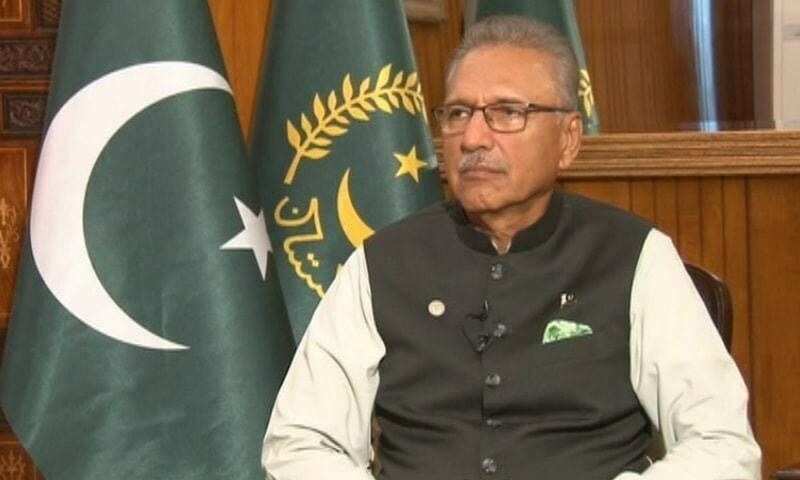The weeks-long low-level brawl burst into a large-scale volcano on Wednesday when President Dr Arif Alvi appointed November 6, for the arrangement of countrywide elections in a letter addressed by the Presidency to the Election Commission of Pakistan. In a response to the previous ECP’s letter to the Presidency, Dr Alvi categorically told the electoral watchdog that Article 48(5) of the constitution empowered him to appoint a date not later than 90 days from the date of dissolution of assemblies, for holding of a general election to the assembly. The President stressed that the National Assembly was dissolved by him on the advice of the then-prime minister Shehbaz Sharif on August 9, and he was the competent authority to choose the date for the next polls.
The nation has plunged into a new constitutional crisis after the President who also acts as the head of the State has unilaterally suggested a date for nationwide General Elections in contrast to the Election Commission of Pakistan (ECP), and incumbent rulers who steer the government temporarily. The tug of war between the personalities has shaped into a serious clash between the state institutions because of the mockery of the law and the self-centred appraisal of the constitution. Currently, the President and the ECP are quoting selected clauses of the constitution to argue their cases but are not ready to lessen each other’s viewpoint or to search for a middle way to escape further anarchy in an already fragile nation.
Previously, the President invited the Chief Election Commissioner for consultation who refused to call on the President and claimed sole mandate for the arrangement of the nationwide polls. Meanwhile, the CEC maintained that after the publication of Census 2023 on August 7, the duly notified delimitation of constituencies was in progress as required by Article 51(5) and Section 17 of the Elections Act, 2017. The latest development to the ongoing controversy around the timing of general elections has clearly sensitized the nation that the people sitting in high chairs are more loyal to their political and ethnic affiliations than official obligations or national interests, as their antagonism brings catastrophes to the Pakistani nation every other day.
Interestingly, the caretaker Law Minister voiced the same opinion and supported the ECP case during his recent meeting with the President, while all provincial interim setups are comfortable with the extension of their tenures. The President has used his honourable office and unilaterally fixed the date for elections opening up a new Pandora’s box, a fresh constitutional dispute regarding prerogatives of high offices and a burning topic of discussion for prime-time talk shows on news channels in our country.The new development would further shore up the prevailing uncertainty, political chaos, and social polarisation in the country and add to the judicial work of the apex courts which are the sole forum for the resolution of such kind of constitutional disputes.
The current situation was long expected to emerge in our nation because of a years-long tussle between the warring political groups, politically motivated legislation in the past years together with a heightened PTI-establishment tussle that erupted in the aftermath of the May 9 violence. Historically, our nation has missed the opportunity for a national consensus that is the essence of democracy, national cohesion and unity, while our leadership failed to exercise political wisdom and national sagacity. Presidential verdict has pushed the country into a constitutional disorder and the ball has now entered the Adjudicator’s enclosure. In the current scenario, all contesting political groups and national institutions must hold their belief in the Country’s judiciary and wait for the final verdict that would not only solve the puzzle but likely to set the political direction of the country.







